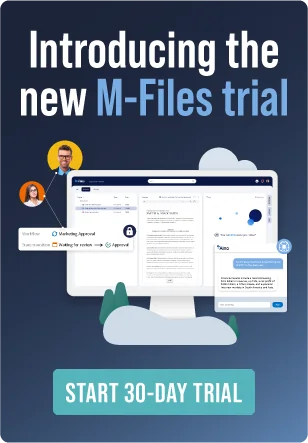Artificial Intelligence and the Future of Data and Analytics

In today's digital era, businesses are swimming in a sea of data. Understanding and harnessing the power of advanced analytics, data, collective intelligence, and artificial intelligence (AI) is crucial. Developing a strong data and analytics strategy is essential for organizations looking to use information effectively.
Unstructured vs. Structured Data
It's crucial to discern between structured data and unstructured data. Structured data is neatly organized in databases, while unstructured data lacks a predefined data model.
Structured data offers easy analysis. On the other hand, unstructured data, often found in emails and social media posts, require advanced processing techniques. A well-rounded enterprise data management platform is essential for businesses aiming to extract meaningful insights from both types.

Data and Analytics Governance
Data is a valuable asset. The creation of data products involves turning data into tools that aid decision-making. These products use data to ensure stakeholders make informed choices. Augmented data quality solutions ensure the reliability and accuracy of these products.
Enterprises are increasingly recognizing the significance of data and analytics governance in their operations. Businesses must structure data to align with organizational goals, ensuring quality and adhering to regulatory requirements.
Implementing a robust data and analytics governance solution helps navigate this complex data landscape.
Data and Analytics in Business Operations
Pursuing positive business outcomes is at the core of any data and analytics strategy. Achieving business goals involves measuring the success of data-driven decisions. Proper data governance is pivotal in ensuring the quality of the insights that steer those outcomes.
The goal is to achieve pervasive data and analytics usage, meaning that decision makers use data and analytics in every business decision at every level of an organization.
AI in the Evolution of Data and Analytics
AI has become the peak of technological innovation and efficiency. Businesses are implementing machine learning to transform raw data into knowledge. A robust AI strategy can maximize the effectiveness of data and analytics.
AI and automated systems can aid in tasks such as data storage and management, data organization, and data analysis.
Generative AI applications are the next step—these applications use advanced algorithms to mimic and even surpass human creativity. By deploying generative AI in the enterprise, businesses can automate repetitive tasks. AI and machine learning usage will free up human resources for more strategic work.
Emerging Practices for Decision Intelligence
Another aspect of the digital transformation of data and analytics is decision intelligence platforms. These platforms provide businesses with tools for decision-making using automated analysis and collective intelligence.
Automation is the key feature of decision intelligence platforms. They perform routine decision-making processes, freeing humans to focus on more complex and strategic aspects of work. Automated decision-making enhances efficiency and reduces the risk of errors.

These systems continuously learn and adapt. Machine learning is the next evolution of AI strategy and maturity. AI is essential for decision intelligence and optimization.
Financial Governance in Data Management
Data and analytics strategies can be costly. This is where financial governance comes in. It involves managing budgets, reducing costs, and ensuring fiscal responsibility in data management.
Organizations that prioritize financial governance strike a balance between innovation and cost-effectiveness.
FinOps and Financial Governance
Organizations are turning to FinOps and financial governance to ensure fiscal responsibility. FinOps, short for financial operations, aims to maximize the financial value of cloud resources.
By using a cloud data management provider, businesses can efficiently manage costs. AI is implemented into cloud management systems and FinOps to achieve the greatest success.
The Future of Data and Analytics
Data, collective intelligence, and AI are reshaping business operations. Proper data management, including a strong strategy and the incorporation of AI, leads to informed decision-making and effective outcomes.
Businesses can enter a new era of data and analytics by using generative AI, decision intelligence platforms, and FinOps. The future of data-driven enterprises lies in these innovations. The value of AI initiatives is elevated in this field and will determine its future.
FAQ
What are structured and unstructured data?
Structured data are organized and typically stored in databases. It's easily searchable and analyzed. Unstructured data lacks organization. Unstructured data types include emails, images, and social media posts, requiring more advanced data analysis to interpret.
What is data management?
Data management includes the organization, collection, processing, and usage of data storage to ensure accuracy, accessibility, and security. It aims to optimize data use to drive informed decision-making and efficient business operations.




